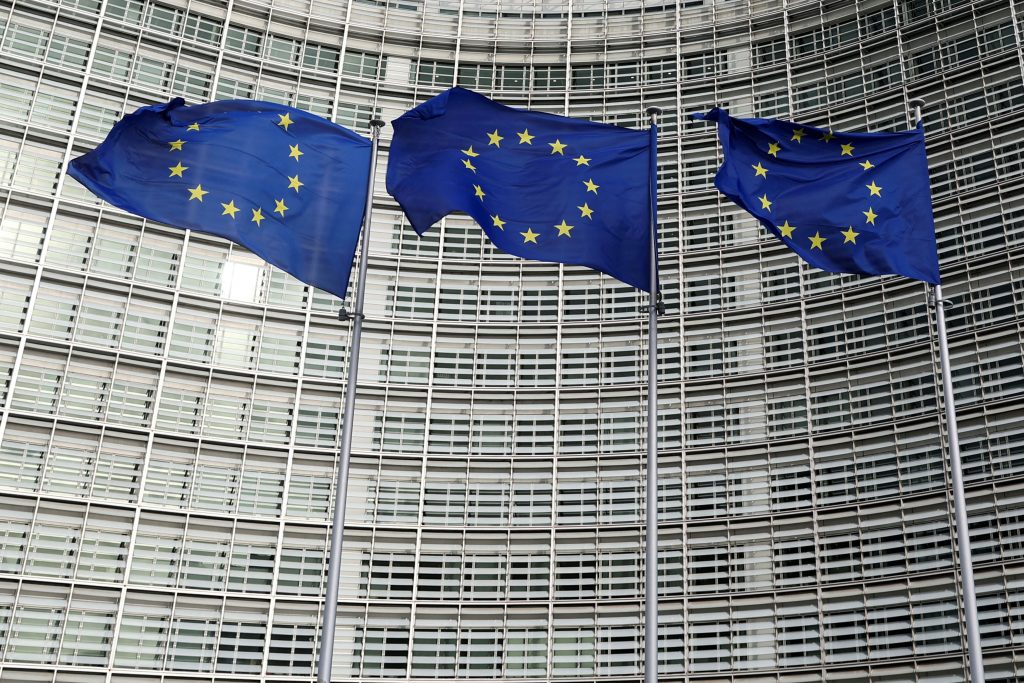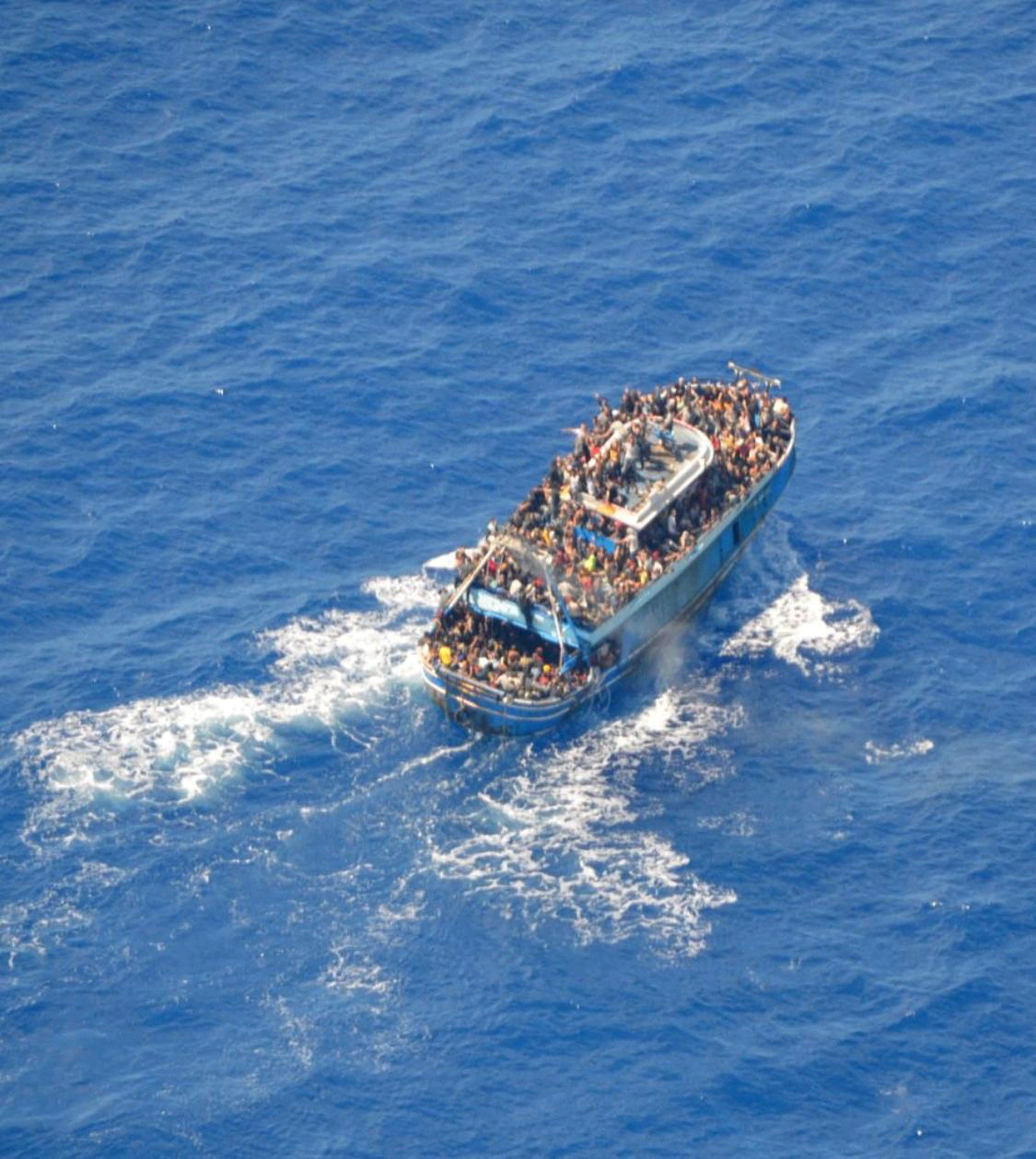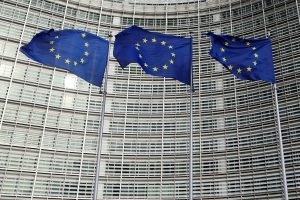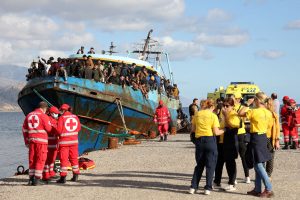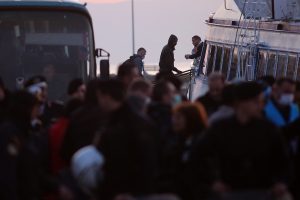Seven months after the sinking of a migrant-filled fishing trawler some 50 nautical miles off the southwest end of Greece, the circumstances surrounding the Pylos shipwreck remain disputed, and truth and justice elusive.
The shipwreck of the “Adriana” has been painted as one of the Mediterranean’s deadliest wrecks involving irregular migrants. Some international media reports and special investigations claimed that more than 600 people died when the vessel overturned and sank, which means that a total of approximately 750 people would have been crammed into the vessel. Conversely, Greek authorities place the death toll at 82, which is based upon the actual number of bodies retrieved from the water.
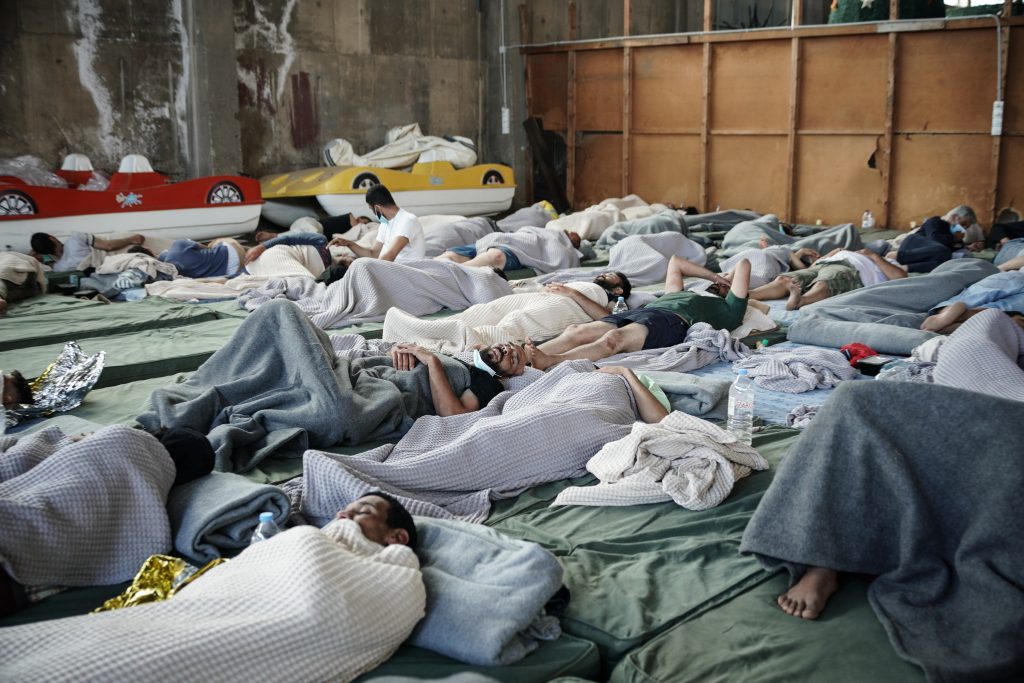
Suvivors rest in a warehouse used as a temporary shelter, after a boat carrying dozens of migrants sank in the Ionian Sea, in Kalamata town, Greece, on June 14, 2023. At least 59 people died while more than 100 people have been rescued after the shipwreck. / Διασωθέντες απο το πολύνεκρο ναυάγιο ανοιχτά της Πύλου, διαμένουν σε αποθήκες δίπλα στο λιμάνι της Καλαμάτας, στις 14 Ιούνιου, 2023
Reports by third parties highlight the conflicting account of events by Greek authorities and various institutions involved, as well as by the survivors themselves, making independent probes into the Pylos shipwreck all the more important.
Stemming from the discrepancies, human rights organizations such as Amnesty International and Human Rights Watch have called for the Greek government to make meaningful progress into investigations and to prosecute any officials indicted on charges of negligence or even intentional wrongdoing, in order to help avoid future deaths.
The Investigations
Currently, separate investigations are underway in the country including by the criminal court of Kalamata, the naval court of the Hellenic Coast Guard in Piraeus, and more recently, by the Greek Ombudsman. However, progress has been slow, and it is unclear when any of the cases will come before a court. Additionally, it’s unclear how the outcomes of each investigation may impact one another.
Specifically, the criminal court of Kalamata, which has jurisdiction as the shipwreck occurred off the harbor town of Pylos in the southwest of the Peloponnese, is trying nine survivors for human smuggling. This approach is aligned with Greek and European policy to aggressively prosecute and dismantle smuggling networks.
Meanwhile, the Hellenic Coast Guard has its own tribunal, which has opened an investigation into the role of the Coast Guard officers who first detected the distressed and dilapidated vessel. The same naval court Prosecutor is also dealing with a criminal complaint filed by 40 survivors who allege that Greek authorities are responsible for the shipwreck, according to statements by the European Commission of Human Rights.
In an extraordinary move on Nov. 9, the Greek Ombudsman’s office announced that it had activated a special mechanism called the National Mechanism for the Investigation of Arbitrary (which is provided for under Greek law Gov Gazette B’ 2359/2020, art 8 par. a.) and that it would also be conducting its own separate investigation into the role of the Hellenic Coast Guard.
The Ombudsman’s Investigation and the Coastguard’s Reaction
The Ombudsman’s office justified the decision in a statement, saying that despite existing inquiries, it was necessary to activate the mechanism due to “the gravity (number of drowned and possibly missing), the vulnerability of victims and the persistence of allegations for arbitrary behavior by the coastguard- and the fact that the Hellenic Coast Guard declined to open up an internal investigation.” The statement added that “…had the Ombudsman not decided an own investigation, there would not have been any – disciplinary – investigation of the incident.”
In response to the announcement, a source within Greece’s Coast Guard came to defense of the corps, saying that it has already initiated a case into the Pylos shipwreck at the highest level possible and therefore cannot open another, while the existing case does not rule out the prospect of criminal charges eventually being filed. The source said the coastguard was cooperative with the Ombudsman’s office and responded to all of its requests for additional information. Both the Ombudsman and sources within the Coast Guard explained that it is unclear how long their investigations will last.
Commenting on the case, a European Commission Spokesperson said, “Investigations are still ongoing and fall under the responsibility of Member States, in this case Greece. More generally, this tragedy highlights once more the urgency to intensify the work with partner countries, redouble efforts in the fight against migrant smuggling, to prevent irregular departures in overcrowded and unseaworthy boats, and to work on alternative legal pathways. The Commission remains in contact with the Greek authorities.”
